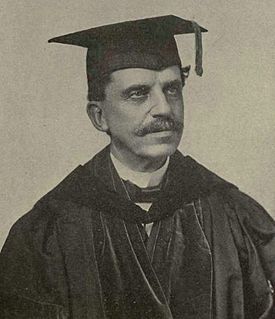A Quote by Chris Hedges
We have to grasp, as Marx and Adam Smith did, that corporations are not concerned with the common good. They exploit, pollute, impoverish, repress, kill, and lie to make money. They throw poor people out of homes, let the uninsured die, wage useless wars for profit, poison and pollute the ecosystem, slash social assistance programs, gut public education, trash the global economy, plunder the U.S. Treasury and crush all popular movements that seek justice for working men and women. They worship money and power.
Quote Topics
Adam
Assistance
Common
Common Good
Concerned
Corporations
Crush
Did
Die
Economy
Ecosystem
Education
Exploit
Global
Global Economy
Good
Grasp
Gut
Homes
Justice
Lie
Make
Marx
Men
Men And Women
Money
Money And Power
Movements
Out
People
Plunder
Poison
Poor
Poor People
Popular
Power
Profit
Programs
Public
Public Education
Seek
Smith
Social
Throw
Trash
Treasury
Useless
Wage
Wars
Women
Working
Worship
Related Quotes
For the corporation executives, the military metaphysic often coincides with their interest in a stable and planned flow of profit; it enables them to have their risk underwritten by public money; it enables them reasonably to expect that they can exploit for private profit now and later, the risky research developments paid for by public money. It is, in brief, a mask of the subsidized capitalism from which they extract profit and upon which their power is based.
We've had a century in which we've allowed some industries to basically pollute the air, pollute the water, pollute the ground, pollute the rivers, and we've been trying sporadically to clean air acts and ways of regulating them. But we now are sitting in a world that's filled with all sorts of materials that we don't really know the impact of. It's not like they're necessarily all poisonous but it's odd to put all these materials into our environment and watch.
The fact of the matter is that today, stuff-selling mega-corporations have a huge influence on our daily lives. And because of the competitive nature of our global economy, these corporations are generally only concerned with one thing - the bottom line. That is, maximising profit, regardless of the social or environmental costs.
[There is] a strange split in thinking common to those on the religious left, who are quick to denounce the profit motive and commercialism. Yet, they seem to think that the key to happiness is giving people more stuff - by enlisting the coercive power of government. This perverse way of thinking holds that 'social justice' demands that we take money from those who have earned it and give it to those who have less of it. That's not social justice; that's materialism.
Money is one form of power. But what is more powerful is financial education. Money comes and goes, but if you have the education about how money works, you gain power over it and can begin building wealth. The reason positive thinking alone does not work is because most people went to school and never learned how money works, so they spend their lives working for money.
The scientific world, the materialistic world, the world of commerce, the world of business, the world of individualism, the world of capitalism, world of communism - all these worlds are the old story now. Where we think we exploit nature, we exploit people. Market rules, profit rules, money rules. We work for name, fame, power, money, profit. That's the old story.
... an essential feature of a decent society, and an almost defining feature of a democratic society, is relative equality of outcome - not opportunity, but outcome. Without that you can't seriously talk about a democratic state... These concepts of the common good have a long life. They lie right at the core of classical liberalism, of Enlightenment thinking... Like Aristotle, [Adam] Smith understood that the common good will require substantial intervention to assure lasting prosperity of the poor by distribution of public revenues.
Trickle-down economics - it didn't work. The whole idea was supply-side economics: give rich people a lot of money; they'll spend it, it'll go into the economy. Here's what we found out - rich people, really good at keeping all the money. That's how they got rich. If you want it in the economy, give it to the poor people. You know what they're really good at? Spending all their money.
Two things, Christian reader, particularly excite the will of man to good. A principle of justice is one, the other the profit we may derive therefrom. All wise men, therefore, agree that justice and profit are the two most powerful inducements to move our wills to any undertaking. Now, though men seek profit more frequently than justice, yet justice is in itself more powerful.
If the government were obliged to come to the people for money instead of vice-versa, the people would keep government under control and operate their economy satisfactorily with prosperity and peace resulting. The peoples of the nations do not make war. For them peace is the natural and permanent order. Wars are planned and perpetrated by politicians and their diplomats; and the money power of government is the means by which the people are maneuvered into wars.

































